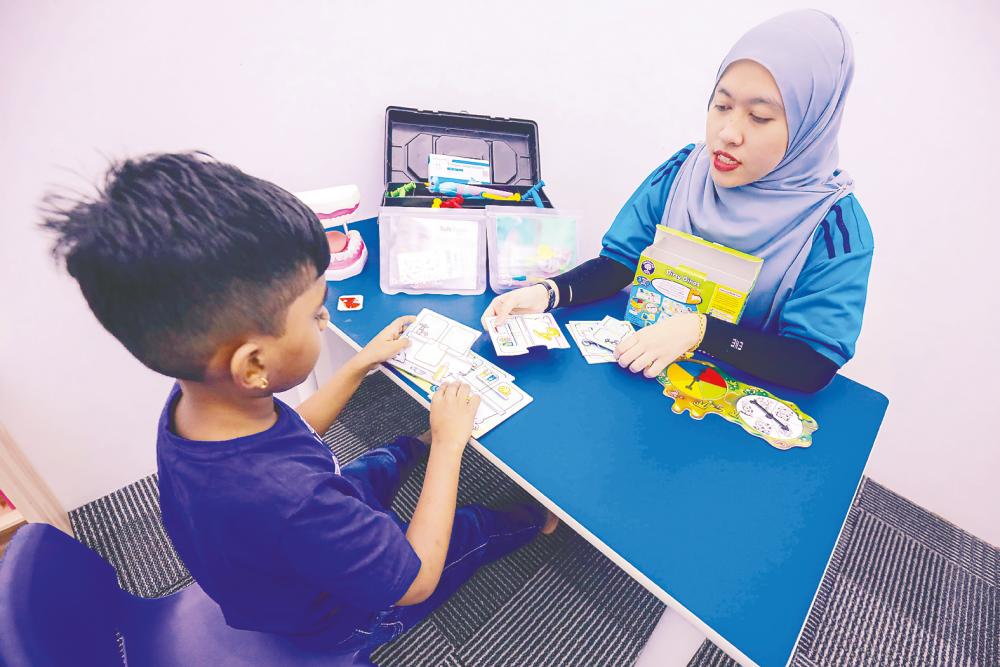PETALING JAYA: The Covid-19 pandemic may have officially ended in Malaysia in April 2022, but its lingering effects are evident today, particularly in speech delays among children.
As of early December, the Malaysian Association of Speech-Language and Hearing (MASH) recorded 1,881 new referrals for speech delays.
While slightly lower than the 1,981 cases reported in 2023, the figure remains significantly higher than the 897 cases reported in 2020.
MASH child language and literacy development special interest group leader and speech-language therapist Cho Kai Shuo said the pandemic exacerbated speech delays due to reduced social interactions and limited access to early intervention services.
This reflects global trends, in which cases of speech disorders have doubled since the pandemic.
The National Health and Morbidity Survey 2022 reported that 56,452 children, or 2.7% of Malaysia’s child population, were diagnosed with speech delays, a sharp rise from the 1.7% reported in 2016.
Additionally, 7.4% of children were identified as having developmental delays, which include autism, Down syndrome, hearing impairments and speech issues.
Highlighting the severity of the issue, MASH vice-president and speech-language therapist Emily F.W. Kok said some facilities, such as a paediatric centre in the Klang Valley, has waiting times of up to 12 months for new referrals.
“This underscores the strain on resources and the pressing need for early intervention services. Urban areas report a higher prevalence, with 7.3% (111,312 children) of those under five diagnosed with developmental delays compared with 7.6% (46,414 children) in rural areas,” she said.
Kok noted that while urban centres benefit from better healthcare access, rural areas may underreport cases due to limited resources and awareness.
During the pandemic, teletherapy emerged as a valuable alternative, allowing therapists to guide parents in integrating language-learning strategies into daily routines.
Kok emphasised that speech and language delays often arise from a combination of medical, environmental and family factors.
“Parental stress and remote work during the pandemic reduced quality interactions with children, impacting their language development. Excessive screen time compounded the issue, with studies linking over two hours of daily unsupervised screen use to a sixfold increase in language delays,” she said.
Kok added that excessive reliance on digital media as a substitute for interaction has severely affected language development.
Activities such as play and conversation are vital for children to develop communication skills in a natural and engaging way.
Cho referenced the American Academy of Pediatrics’ guidelines on screen time, recommending no screen exposure for children under 18 months except for necessary video chats, limited high-quality content for those aged 18 months to two years, and no more than one hour of supervised, high-quality screen time daily for children aged two to five.
“Digital media should never replace meaningful parent-child interactions, which are essential for building strong bonds and healthy development,” he said.
Consultant paediatrician and child disability activist Datuk Dr Amar-Singh H.S.S. stressed the importance of a language-rich home environment and limited screen time.
He suggested playgroups to foster communication and social skills, alongside tailored therapy plans for children needing additional support.
“A 2016 study revealed Malaysian two-year-olds averaged six hours of daily screen use, much of it unsupervised. Many parents and caregivers use screens as convenient ‘babysitters’, but mounting evidence shows this adversely affects young children,” he said.
Amar called for holistic solutions, including better parental education, improved access to resources, and robust early intervention systems to address such challenges effectively.









